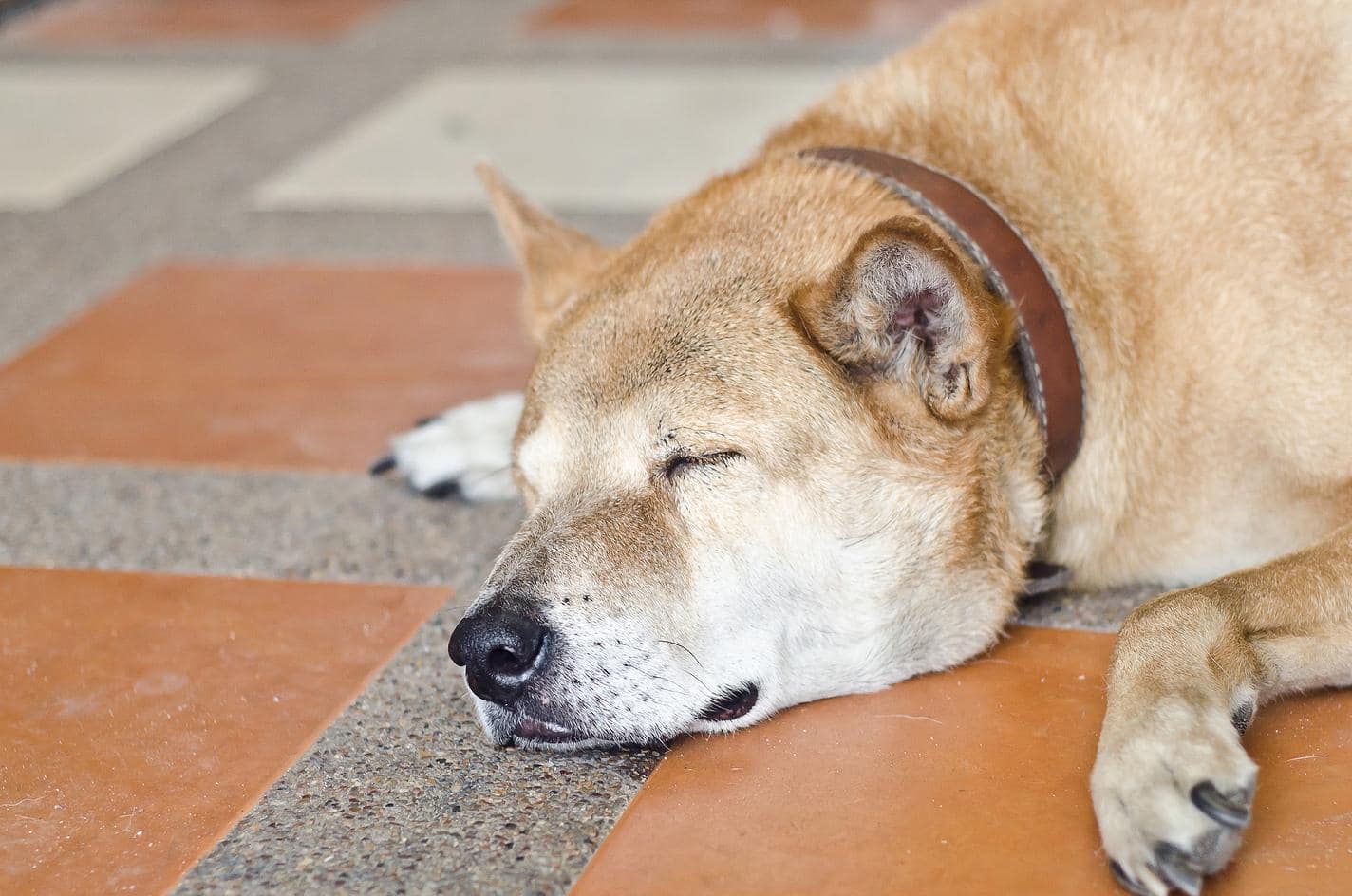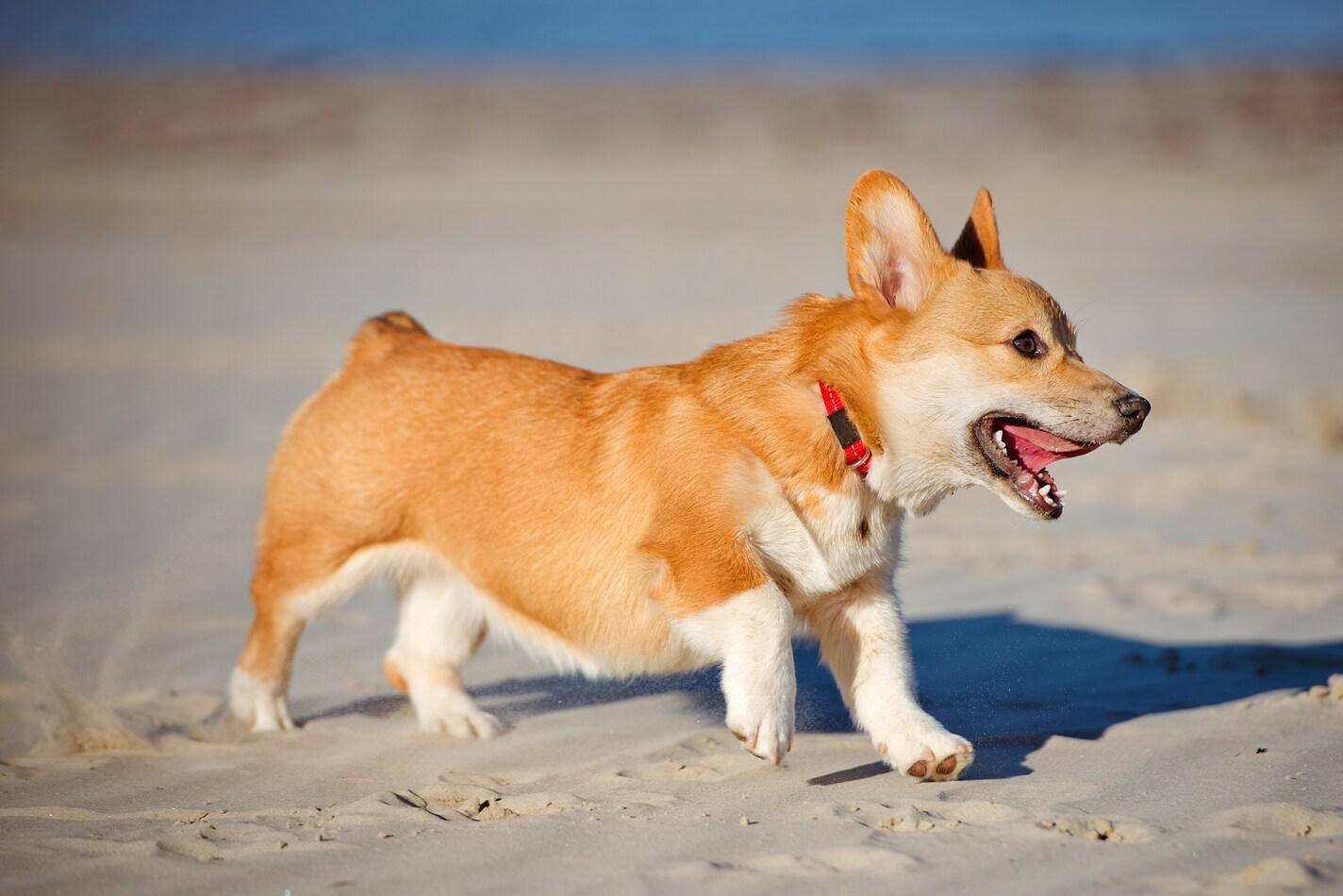
-
Find the right food for your petTake this quiz to see which food may be the best for your furry friend.Find the right food for your petTake this quiz to see which food may be the best for your furry friend.Featured products
 Perfect Weight Small & Mini Adult Dog Food
Perfect Weight Small & Mini Adult Dog FoodHill's Science Plan Adult Small & Mini Dog Food with Turkey is a complete premium pet food for adult small dogs from 1 year old that are prone to weight gain or slightly overweight. This deliciously smooth mousse is formulated to deliver the appropriate amount of energy to support weight maintenance in adult dogs.
Shop Now Perfect Digestion Small & Mini Adult Dog Food
Perfect Digestion Small & Mini Adult Dog FoodHill's Science Plan Perfect Digestion Small & Mini Adult Dog Food with Turkey is a complete premium pet food for small breed adult dogs aged 1–6 years. This deliciously smooth mousse is precisely balanced to deliver the appropriate amount of energy and to support digestive health in adult, small breed dogs.
Shop Now Hypoallergenic Small & Mini Adult Dog Food
Hypoallergenic Small & Mini Adult Dog FoodHILL'S SCIENCE PLAN Hypoallergenic Small&Mini Adult dog food with Salmon is complete pet food for adult small dogs 1–6 years old. It's formulated for dogs with delicate skin and stomach, with limited high quality novel protein sources & no grain.
Shop NowFeatured products Oral Care Adult Cat Food
Oral Care Adult Cat FoodHill's Science Plan Oral Care Adult Cat Food with Chicken contains clinically proven kibble technology to reduce plaque & tartar build up.
Shop Now Urinary Health Adult Cat Food with Chicken
Urinary Health Adult Cat Food with ChickenHill's Science Plan Urinary Health Adult Cat Food with Chicken supports the health of the whole urinary system. Suitable for sterilised cats.
Shop Now Sterilised Mature Adult Cat Food
Sterilised Mature Adult Cat FoodHill's Science Plan Sterilised Cat Mature Adult Cat Food with Chicken is specially formulated with ActivBiome+ Multi-Benefit Technology. It is a precisely balanced nutrition tailored to meet the needs of mature adult sterilised cats, ages 7+, and to promote graceful ageing.
Shop Now -
Dog
- Dog Tips & Articles
-
Health Category
- Weight
- Food & Environmental Sensitivities
- Urinary
- Digestive
- Joint
- Kidney
-
Life Stage
- Puppy Nutrition
- Adult Nutrition
- Senior Nutrition
Cat- Cat Tips & Articles
-
Health Category
- Weight
- Skin & Food Sensitivities
- Urinary
- Digestive
- Kidney
-
Life Stage
- Kitten Nutrition
- Adult Nutrition
Featured articles Develop your gut instinct | Hill's Pet
Develop your gut instinct | Hill's PetDigestive disorders can affect any part of the digestive system, from the stomach, small intestine and through to the large intestine.
Read More Tips For Mixing Wet And Dry Pet Food
Tips For Mixing Wet And Dry Pet FoodDiscover tips for mixing wet and dry pet food to ensure balanced nutrition and variety for your pet. For comprehensive feeding advice, visit Hill's Pet UK.
Read More Virtual Vet Visits: What You Need to Know
Virtual Vet Visits: What You Need to KnowLearn the ins and outs of a televet appointment before you talk to a vet online.
Read More -


The dog poop spectrum - from diarrhoea to constipation.
Whether you call it dog faeces, poo or poop, as owners we’re all a bit obsessed with the colour, consistency and frequency of our dog’s poop. And we should be because we need to know what’s normal and what’s not. The spectrum mentioned in the title can also be a veritable rainbow with everything from yellow poop to green to red, bloody dog poop. As for consistency and frequency, constipation and diarrhoea are opposites there too.
"What defines constipation?" and "Why is my dog constipated?" are questions frequently asked by pet owners. On the opposite end of the gastrointestinal (GI) spectrum lies diarrhoea, and both can be perplexing and can have many underlying causes. Both of these GI issues in dogs can cause lethargy, bloating and extreme discomfort. Although providing your dog with nutritionally balanced food and avoiding dietary indiscretions (like trash picking, ingesting toys and nibbling table scraps) can minimise GI upset, constipation and diarrhoea are common conditions pet parents should be aware of and know when it’s time to see the the vet. Your vet can help identify the cause of your dog’s constipation or diarrhoea and the best way to manage it.

What Is Constipation?
Most dogs have a typical daily pattern of bowel movements. You probably already know it well from the number of bags you bring on a walk. Keeping track of your dog's normal habits can help you identify when something might be wrong.
Before you ask "Why is my dog constipated?" you should know how to spot the signs. Constipation refers to infrequent or difficult passage of stool. The stool passed is often hard and dry and might contain blood. A dog that poops occasionally one or two times less than usual is generally not cause for alarm, but if your dog has not passed stool in more than a day and is showing signs of straining or a poor appetite, call your veterinarian.
Why Is My Dog Constipated?
The question of why your dog is constipated can have many answers. A physical exam by your vet and tests, such as X-rays, will help discover or rule out the following problems:
- Ingestion of foreign material (clothing, toys, bones, stones, grass, fur, human hair)
- Sluggish intestinal movement
- Dehydration
- Matted fur blocking the anus
- Enlarged prostate gland in male dogs
- Hernias (when an injury or strain pushes a small section of an internal organ through the surrounding muscle)
- Tumor or mass within the intestinal tract
- Infected or impacted anal sacs
- Side effect of medications
- Orthopaedic and neurological conditions, such as arthritis, that hinder a dog's ability to squat


Tasty Tips
How Can I Manage My Dog's Constipation?
The management of constipation depends on the underlying cause. Dogs that are having difficulty passing stools containing fur, grass or bone fragments might need the gentle help of a vet's gloved hand to manually remove the impacted stool. Dogs having difficulty defecating due to enlarged prostate glands, masses within the intestinal tract or hernias will require surgical or medical intervention.
You can help your orthopaedically or neurologically impaired dog stay regular by supporting them with a harness while they defecate. Dogs with conditions, such as diabetes mellitus and kidney disease, which can increase their risk of dehydration and constipation, might need supplemental water added to their food or the administration of subcutaneous (under the skin) or intravenous (injected into a vein) fluids. If X-rays show a large amount of stool within your dog's colon, your vet might perform an enema to give them significant and immediate relief.
In order to prevent the frustrating and distressing scenario of dealing with dog constipation, talk to your vet about ways you can handle and prevent constipation. Your vet might recommend giving your dog high-moisture soft food, stool softeners, a high fibre therapeutic food, or a low residue therapeutic food. The increased fibre content of certain therapeutic dog food allows for greater absorption of water, which softens stool and promotes intestinal motility (the body's ability to move food through the digestive system). Always consult a vet before administering any over-the-counter medication to your dog, as many can be dangerous or fatal for dogs if not properly administered.
What Is Diarrhoea?
In contrast to constipation, which can leave you wondering when your dog will poo again, diarrhoea can leave a pet parent asking if their dog will ever stop pooping again. Diarrhoea, the production of loose and frequent stools, is one of the most common G.I. issues in dogs. Like constipation, diarrhoea can result from a variety of causes:
- Eating rich or indigestible food (table scraps, sticks, toys, rubbish)
- Sudden change in food or treats
- Food allergy or intolerance
- Stress (boarding in kennel, travel or separation anxiety)
- Parasites
- Viral or bacterial infection
- Inflammatory bowel disease
- Cancer
- Medications (antibiotics can often be a cause)
- Non-gastrointestinal diseases, such as kidney or liver disorders or pancreatitis
How Can I Manage My Dog's Diarrhoea?
GI issues in dogs are consistently found on top-ten lists of medical issues warranting veterinary visits. While many causes of diarrhoea are serious and require medical attention, less severe episodes can be managed at home after you consult your vet. Before talking to your vet, consider the following items so you can provide a more complete description of your pet’s issue:
- How long has the diarrhoea been going on?
- What other medical issues does your dog have?
- What colour is your dog's stool?
- Is your dog eating and drinking normally?
- Has your dog vomited?
- Is your dog lethargic?
Most importantly, please make sure to consult your veterinarian if you are concerned about any of these issues.
What Home Care Tips Will Help My Dog's GI Distress?
When it comes to managing diarrhoea at home, it's best to follow your vet’s advice carefully. It is critical to provide your dog with fresh water and to encourage them to drink to prevent dehydration. Unless your vet asks you to, it’s best not to withhold food if your dog has diarrhoea. Food is important to keep the cells of the intestines nourished and help speed up the recovery process. Talk to your vet about whether your dog’s normal food is OK or whether they would prefer you to give something more easily digested.
Even if your dog's case of diarrhoea seems mild, seeking veterinary care is always a safe choice. Your vet can prescribe medications to help quickly resolve diarrhoea and might suggest a different therapeutic food than would be recommended for constipation; this dog food will be a more highly digestible food that helps replace depleted key nutrients.
Issues in dogs, whether constipation or diarrhoea, require close attention. Although neither is usually an immediate emergency, if symptoms persist and your dog's condition worsens, do not delay veterinary care. A familiarity with your dog's normal defecation frequency and poop consistency will help you recognise a problem and provide optimal care for your best friend.


Mindy Cohan is a veterinarian in the Philadelphia area and a graduate of the University of Pennsylvania School of Veterinary Medicine. She has a rescue dog named Jem. Mindy enjoys hiking with Jem while listening to podcasts about the American Civil War and Abraham Lincoln.
Related products

HILL'S SCIENCE PLAN Hypoallergenic Small&Mini Adult dog food with Salmon is complete pet food for adult small dogs 1–6 years old. It's formulated for dogs with delicate skin and stomach, with limited high quality novel protein sources & no grain.

Hill's Science Plan Adult Small & Mini Dog Food with Turkey is a complete premium pet food for adult small dogs from 1 year old that are prone to weight gain or slightly overweight. This deliciously smooth mousse is formulated to deliver the appropriate amount of energy to support weight maintenance in adult dogs.

Hill's Science Plan Perfect Digestion Small & Mini Adult Dog Food with Turkey is a complete premium pet food for small breed adult dogs aged 1–6 years. This deliciously smooth mousse is precisely balanced to deliver the appropriate amount of energy and to support digestive health in adult, small breed dogs.

Hill's Science Plan Sensitive Stomach & Skin Adult Wet Dog Food with Chicken is a complete premium dog food for adult dogs from 1 year. This savoury tinned loaf is enriched with ingredients that support digestive health & skin care.
Related articles

Gurgling tummies in turmoil are not good news for pets. Owners who have to clean up the unfortunate consequences, digestive problems are one of the rare downsides to owning a pet.

Explore the benefits of wet dog food and how it can improve your pet's wellbeing and happiness. For more nutritional insights, visit Hill's Pet UK.

Learn what you can feed your pregnant or nursing dog to keep her and her new pups healthy.

Find the best nutrition for small breed dogs and what makes the perfect food choice for their health. Explore more guidance for small dogs at Hill's Pet UK.

Put your dog on a diet without them knowing
Our low calorie formula helps you control your dog's weight. It's packed with high-quality protein for building lean muscles, and made with purposeful ingredients for a flavourful, nutritious meal. Clinically proven antioxidants, Vitamin C+E, help promote a healthy immune system.
Put your dog on a diet without them knowing
Our low calorie formula helps you control your dog's weight. It's packed with high-quality protein for building lean muscles, and made with purposeful ingredients for a flavourful, nutritious meal. Clinically proven antioxidants, Vitamin C+E, help promote a healthy immune system.



